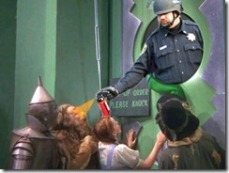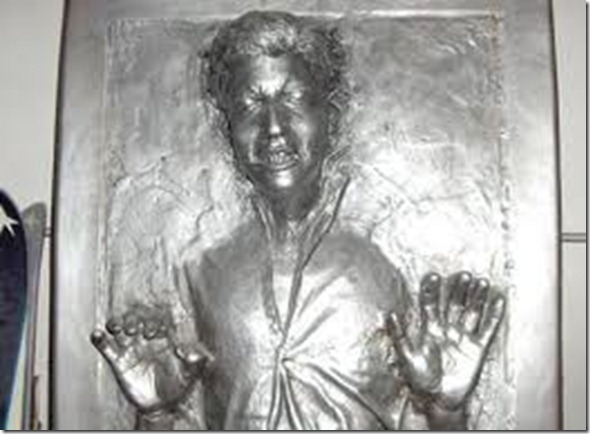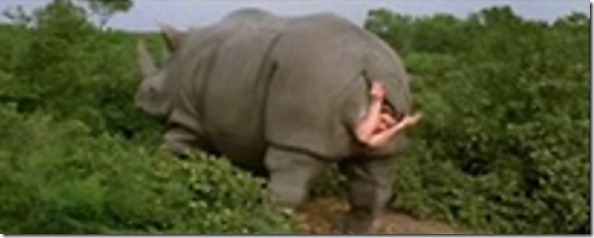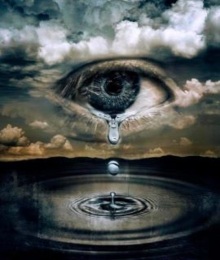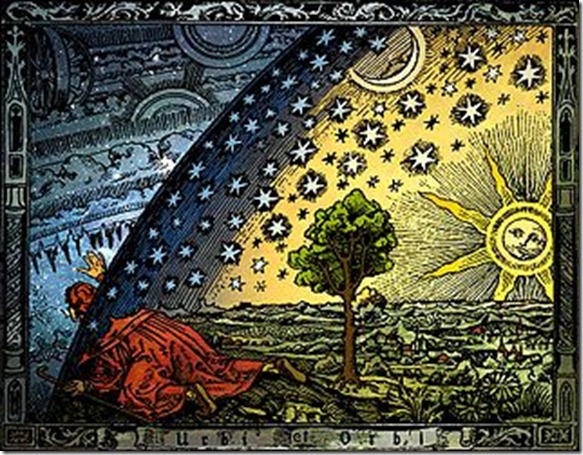Posts Tagged Child Abuse
“With defense of stores, or “investment,” we have another reason children were more desired, after you became sedentary. They act like little soldiers.
Posted by sillymickel in activism, authenticity, being yourself, Culture, economics, Generations, globalrevolution, History, individualism, life, meaning, nonconform, philosophy, Politics, psychology, spirituality on April 28, 2014
“At any rate, in addition to all the extra work you brought into Nature through your controlling ways as it expressed itself in food production and storage, there is additional work involved in defending those stores. Unlike the “possessions” of those in Nature, which are easily acquired and just as easily discarded for they can be easily acquired again, this new classification of possessions that are your “stores” represent a dearly acquired (through “work”) collection of things. They are the physical manifestation of human suffering. Hence they are valued highly for the fact that they are not easily or quickly replaceable. Hence also, they represent quite a concentration of labor, wrought of suffering, which, if acquired, would reduce the amount of such suffering (labor or work) for someone else. So, they are viewed with extreme attraction by equally famished … and suffering … others. With these concentrations of labor-suffering — these stores — then, comes the need to defend them from those others.

“With defense of stores, or “investment,” we have another reason children were more desired, after you became sedentary. Children are not just extra hands in the extra work you have created in your descent into ever more controlling, they are enlisted in keeping others from stealing it. They act like little soldiers.
“So, with humans we have this added labor, this added, actual, work. Your Marxists like to talk about the surplus value of worker’s labor and how the capitalist owners take that. They say it really belongs to the workers. But they have never looked deeply into its nature.
“They say there is an additional value that is created through collective endeavors over what would be created individually. What they are saying is that if one adds up the value of what people create, working individually and being self-determining, it is a certain amount — say, the total number of chairs that can be fashioned by that group in that amount of time acting on their own. However, if those workers are organized and working collectively, they produce that amount, plus more — say, the number of chairs produced by that same group acting on an assembly line.
“Anyone who has ever worked in a team knows this. Imagine you are clearing land for farming. You are leveling trees and pulling out stumps. Obviously, you can accomplish a lot more having workers collectively hauling heavy logs than if each worker is on his own straining away. Surplus value is, also, evident in Amish barn-raisings, where working together, structures can be thrown up in a day that would take weeks or months working on one’s own with one’s own strength and energy.
“This is, indeed, a benefit that accrues to humans living in groups of any kind, and it was a huge benefit of tribe life.
“But with sedentary-agrarian ways and hierarchical societies you have an additional surplus value, for humans can be organized around projects in greater numbers and working in tandem and cooperatively. Combining their strength they are able to do things that simply cannot be done, no matter how long one worked away at it, individually or in small groups.
“This is how the pyramids were built. It explains why such things were not done previous to hierarchical societies … they simply could not be.
“Further, with different units applying themselves to specific tasks within the project while other units focus on others, these units become more skilled, more efficient, and more productive in those tasks. This is the “benefit” of division of labor and, in the public sphere, of specialization in regards to task.
“These factors are realized most clearly in industrialized societies; they are the reason the assembly line and manufacturing are so much more productive than the cottage industry of previous times.

“No doubt, right now, you are thinking what a great idea this is. You see it as people having it easier because they are working together to accomplish more.
“Well, not only does that surplus value not come to the workers — this is the essence of the Marxists’ complaint — for it goes to the ones at the top, the ones doing the organizing, the ones doing the enslaving; but it is the product of effort that is onerous because it is coerced. You simply do not have people agreeing to link themselves together hour after hour — perhaps day after, day, perhaps month after month — pulling together against heavy loads. You do not have anyone, of their own volition, wanting to, over and over again, hour after hour, repeat the same simple actions, perhaps actions that are part of the creation of a product that they never see completed, so never getting even the satisfaction and pleasure of manifesting something in reality that was not there before.

“So not only are such workers deprived of the satisfaction of seeing something manifest out of nothingness through the efforts of one’s own hands, they are even ripped off of the pleasure of its completion. They are coerced into giving up their time, their life, in the carrying out of activities in which they find no real pleasure or joy. They hardly appreciate the product that results from their efforts. Not only was the actual decision to create what was created not theirs … it did not spring forth from their desires, their “instincts” … but they were allowed to participate in only a tiny part of its creation. It is about as pleasurable as chewing food that someone else has picked out for themselves, which one does not get to swallow, having to be turned over to the “employer” when one is done.
“So with hired, coerced labor, we have an example of work and free will versus “instinct.” The upshot is that for the worker, that pure pleasure involved in creating something out of relatively nothing, that feeling of awe and magic that one has for that moment identified with the creative principle of the Universe, bringing something from no-thingness into thingness, and had a sense of divinity that way, is denied them.
“There is no planetmate who is similarly deprived….”
.
[Pt 4 of 25rd prasad — Family Fortress.
— excerpted from Planetmates: The Great Reveal – now available in print and e-book format.
ABOUT THE AUTHOR, Michael Adzema. Video below … interviewed by Michael Harrell
.
https://www.youtube-nocookie.com/embed/2mm9OBbYjRE
.
.
— Related: See also other published versions of these ideas….
.
*Dance of the Seven Veils I* (2017).
At Amazon at
*The Secret Life of Stones: Matter, Divinity, and the Path of Ecstasy* (2016).
*Falls from Grace: The Devolution and Revolution of Consciousness* (2014).
*Apocalypse NO: Apocalypse or Earth Rebirth and the Emerging Perinatal Unconscious* (2013).
,
*Culture War, Class War: Occupy Generations and the Rise and Fall of “Obvious Truths”* (2013).
.
To purchase any of Michael Adzema’s books, available in print and e-book formats, go to Michael Adzema’s books at Amazon.
“Children being seen as things … as inanimate … not as live or animate beings with intention … but as objects in space, matter to be used … is called thingification”: The Planetmates on thingification, the economic lodestar, children as commodities, large families, child labor, Nature’s parents
Posted by sillymickel in activism, authenticity, being yourself, Class, Culture, economics, Generations, globalrevolution, History, individualism, life, meaning, nonconform, occupywallstreet, philosophy, Politics, psychology, science, spirituality on April 3, 2014

“So, in this mode, children get to live, but only at the behest of their caregivers. For as long as there have been humans, children have been poisoned through interaction with the unconscious of their parents, and they subsequently manifest the repressed undersides of fully growns, which is comprised of early unmet needs and corrupted desires. However, with this “advance,” this step in human “evolution,” children are actively molded—intrusively—to ends not their own, as well.
“Notice that with Abraham, at this point in history, humans are agrarian: They keep flora and fauna planetmates; they raise crops and they herd sheep. And this is a clue to how, from here on, children will be seen.
“Children will be allowed to live, but only to the extent that they further the agenda and ends of the adult. Children become chattel. They can be utilized, like any resource or investment, and much as humans use animal planetmates, for economic reasons and as little slaves. They can be sold and traded—and this you did and still do. So children are seen not much different from the way humans see the rest of Nature (including planetmates, flora, fauna, and even your women), that is, as investments. They are seen as tools, also. More about that later, in the 29th Prasad.

“Fundamentally, children are thought of as investments. They are commodities. You evaluate everything in the world along cold economic lines. Why? Because of your unnatural fears of deprivation and death, you have built your entire world and your entire consciousness oriented toward that—your economic lodestar. And with a sedentary/agrarian lifeway, there is more work, tedious and hard work, than when you were nomads and gatherers. Your living is harder, but it is more certain, as we have been saying.
“So, on this altar of certainty and increasing control, you sacrifice your children. You see them not just in terms of their level of burdensomeness, not just along the lines of getting a smattering of your unconscious needs fulfilled, though those are influences that always exist. Rather you focus all your intentions on what kind of person you can make of your children for your use later. Barely are you training them in ways to benefit themselves when they get older, but of course, you will do that, for language and primitive interpersonal skills are necessary for any human to function … and to be of use. Rather you are seeking totrain them to be better investments, more useful tools or pawns, in your survival struggles.
“This is why you might call this an intrusive mode of parenting. In this, you wander boldly and blindly into the soul of your child and you rearrange its elements in a way that you can use it. At this point, you have gone from infanticide and abandonment, to soul murder, to children being seen as things … as inanimate … not as live or animate beings with intention … but as objects in space, matter to be used. This is called thingification, and it represents a more separate state from Nature than even soul murder.
“So, it behooves you to intrude upon and dominate that innocent child consciousness, to train that “investment,” in order to maximize its usefulness when it is older. This is very much as you might put money into stocks and bonds as an investment in hopes of a future return. Your mind is calculating how much of physical resources you might need to “invest” in your child and how much “return” you might get … and when. And if there is not a profitable payoff, you are unlikely to do much more than trade, sell, or abandon your child.
“For the first time, then, sedentary/agrarian ways do provide advantages to people with children. Not one child, but children are wanted, for they can be workers. A larger brood of children becomes, with this lifeway, economically advantageous; whereas in your gathering and hunting, nomadic days, an extra child would be seen as another one to be carried along with the group and another mouth to feed, while providing little in exchange, until much later.
“But with large families, you have your little bands of workers and slaves. They are the best “employees” for they can be coerced to work and payment need only be in the amount of food and basic necessities that child might need to survive. You cannot get cheaper labor than that. Furthermore, they can begin to help at very early ages, thus expanding their years of economic value for you. Thus child labor becomes prevalent along with the tendencies toward larger families.
“To clarify, your crazed non-sedentary forebears still were ambivalent about children and perceived families as a burden in relation to their overblown perception of the struggle to survive. However since this burden was lessened through tribe membership and sensible birth control methods and family management, children who were born were—relative to later and to today—wanted, appreciated, and more seen and attended to.
“Alongside this, in the world of Nature, there was neither a disinclination for offspring nor an overinvestment in them. Bonding and affection with Nature’s young rose from the correct, biologically constituted, appreciation of the offspring, and this more individually so. Nature’s parents do not view their children through a dark, crazed veil of dry and thirsty deprivation nor a floral, milky gleem of vain and pathetic estimation.
“In contrast to both of these, agrarian anchors and accumulating, conniving modes fostered appreciation of increases of population, specifically, families, as beneficial in the struggle for survival. It follows that attention and energy would be put into these extra beings, seen increasingly as resources in the struggle against the monstrously over-apprehended fear of death.
“The upshot is that in your ever-increasing sedentary numbers, children were considered advantageous against that imagined encroaching darkness you carried. So the life of your otherwise doomed, helpless newborns was valued more often than not. Your desperate, suffering half-borns would increase your numbers as a defense against your personal demise….”
[Pt 7 of 24rd prasad — Family “Investment”
— excerpted from *Planetmates: The Great Reveal* by Michael Adzema … now available in print and e-book formats at Amazon
ABOUT THE AUTHOR, Michael Adzema. Video below … interviewed by Michael Harrell
.
https://www.youtube-nocookie.com/embed/2mm9OBbYjRE
.
.
— Related: See also other published versions of these ideas….
.
*Dance of the Seven Veils I* (2017).
At Amazon at
*The Secret Life of Stones: Matter, Divinity, and the Path of Ecstasy* (2016).
*Falls from Grace: The Devolution and Revolution of Consciousness* (2014).
*Apocalypse NO: Apocalypse or Earth Rebirth and the Emerging Perinatal Unconscious* (2013).
,
*Culture War, Class War: Occupy Generations and the Rise and Fall of “Obvious Truths”* (2013).
.
Invite you to join me on Twitter: http://twitter.com/sillymickel
friend me on Facebook: https://www.facebook.com/sillymickel
Invite you to join me on Twitter: http://twitter.com/sillymickel
friend me on Facebook: https://www.facebook.com/sillymickel
“With agrarian economics … there was more focus on the immediate family. You had increasing alienation from each other … and increasing greed”: The Planetmates on sex, happiness, the tribe, the nuclear family, and the “intensity of experience” of life
Posted by sillymickel in activism, authenticity, being yourself, Culture, economics, Generations, globalrevolution, History, individualism, life, meaning, nonconform, occupywallstreet, philosophy, Politics, psychology, spirituality on March 25, 2014
“…there was much more happiness attendant upon the state of being a child — being free and open, not just to the awesomeness of the physical world and world of Nature, but to the love, pleasure, fun, and interactions of the social world, as well, with its fascinating array of human behavior and emotion, and the brilliance and marvel of its “magical” members.
“Correspondingly, as nomadic humans, while there was marriage, you were less monogamous. You had various forms and varieties of sexual interactions and marital arrangements. Monogamy was most common, but even then it was less constrained. Sexuality was not the hoarded and jealously guarded commodity it became later for you. Marriage ties were more about the children — their care and the primary responsibilities for them. Additionally, it had to do with societal and cultural concerns, such as expanding kinship opportunities for the relatives of the married couple, and maximizing the circles of sharing and reciprocation. It had virtually nothing to do with establishing lines of heredity or kinship. For owning little (and needing little), you had no concerns about passing possessions or property along. And the mother being the child-bearer led most often to lines of descent being calculated primarily through her, and there was no need, or desire, to upset that natural configuration.
“At any rate, you had much freer ideas about sexuality. Not only did this contribute to the spice of life and the intensity of human experience in general — for women as well as men — but it contributed to the caring of children. Let us explain:
“By “intensity of experience,” we mean that with the excessive stipulations and pressures upon your personhood that came with hierarchical societies, including today’s, your experience — along with your needs, emotions, and aliveness — became muted, dampened. Repressed and numb, your experience lacks the color, the extra flavors and magnificence, and intensity of our lives in Nature. You have no idea what you are missing in your lives. You have not an inkling how you cuddle with your chains and contribute to your increasing numbification over the course of your lives.
“Yet for most of your existence, which preceded your controlling-conforming-sedentary times, your experience was much more intense, alive, and interesting than it is for you now. And what added to that intensity and color, that exquisiteness and pleasure of your experience, was a freer and less constrained sexuality … among many, many, many other things, by the way.
“And how it contributed to the care of children is that it allowed — in that there would be no deprived party — for those times of sexual abstinence after the child was born and during the pregnancy itself. This kind of sexual abstinence would be a product of the sexual disinterest the mother often had while engaged in devoted attention to a young child. The mother derives much sensual satisfaction and emotional fulfillment from nursing, which for one thing pushes other kinds of sensual desire to the side. Other aspects of motherhood and the caring and nurturing of children are also both pleasurable and desirable as well as completely engrossing. So sexual disinterest is much more likely to happen for the mother in the period after childbirth. And as we have said, this contributes to a longer interval between births, and therefore an exceedingly needed and beneficial attention to the most recent newborn.
“Freer sexuality and looser or nonexistent constraint on sexual partners contributed to human satisfaction and social/marital stability for another reason. For sexual disinterest leading to sexual abstinence also occurs for humans for many other reasons: It often occurs during the times of and in the course of spiritual pursuits — not as a result of intention, for as we have said, self-denial is counterproductive to spiritual progress, but because of the degree of engagement and immersion in other-than-bodily pursuits at those times. A person might feel a pull toward taking on something with the total engagement of self that occurs, for example, in a vision quest or walkabout. A looseness of constraints on sexual partners can only facilitate the ability of tribe members to take such things up, being as how it leaves no sexually deprived other, so there is no pressure from another to refrain from following one’s spiritual or creative inclinations.
“Similarly, sexual disinterest occurs, sometimes, during periods of personal transformation, which occur naturally and spontaneously to Authentic humans in the course of their lives. For these might require their full engagement and attention. Other times disinterest might occur is because of ritual or cultural involvement, during periods of grieving upon the death of loved ones, advancing age, sickness, and simply the changing feelings of the partners toward each other over the course of time.
“For all of these reasons and in all these instances, the loose constraints on the sexuality of your earliest forebears and the relative non-exclusivity of sexual partnership meant that the individuals involved were not pulled away from total immersion and focus on these experiences because of a sexually deprived and demanding spouse. In addition to the examples given, consider how, freed from sexual obligations, one could allow oneself to fully and thoroughly grieve, when needed, or allow complete immersion in any comparable emotional experience. This, in its own way, and being at the core of mental health and personal growth, contributed to greater overall happiness, life fulfillment, and expansive abilities to experience life.
“All things considered, more free flowing attitudes toward sex allowed for amplification of life experience, greater spiritual and personal transformation, overall greater happiness, less personal conflict and neurosis, and, importantly, benefit to children. Not only were children helped by the care and attention they wrought of mothers who were not having additional newborns requiring their attention until they, the older ones, were much less emotionally needy, but they were better off due to the fact that they lived in family and tribal groups which were composed of more loving, giving, happy, and affable human adults, because of their overall better fulfillment and experience of life.
“But then you became sedentary and lived in hierarchical societies and all of this changed. With agrarian economics, suddenly, there was more focus on the immediate family. Living permanently on land that one claimed ownership to and which one farmed separated your tribal human group of before into nuclear family units. You did not own the land in common and farm it in a communal style. No. For part of this war against uncertainty and increasing fear of deprivation, which manifested in your having become agrarian and sedentary, was mistrust and fear, not just of Nature, but of each other. You had increasing alienation from each other, greater possessiveness of all things, and increasing greed. What came of such inner forces was that the nuclear family established borders around the land it cultivated and built walls of emotional avoidance between itself and the rest of the community.
“It was families against the world….”
Pt 5 of 24rd prasad — Family “Investment”
— excerpted from *Planetmates: The Great Reveal* by Michael Adzema … now available in print and e-book formats at Amazon
ABOUT THE AUTHOR, Michael Adzema. Video below … interviewed by Michael Harrell
.
https://www.youtube-nocookie.com/embed/2mm9OBbYjRE
.
.
— Related: See also other published versions of these ideas….
.
*Dance of the Seven Veils I* (2017).
At Amazon at
*The Secret Life of Stones: Matter, Divinity, and the Path of Ecstasy* (2016).
*Falls from Grace: The Devolution and Revolution of Consciousness* (2014).
*Apocalypse NO: Apocalypse or Earth Rebirth and the Emerging Perinatal Unconscious* (2013).
,
*Culture War, Class War: Occupy Generations and the Rise and Fall of “Obvious Truths”* (2013).
.
Invite you to join me on Twitter: http://twitter.com/sillymickel
friend me on Facebook: https://www.facebook.com/sillymickel
“When you became agrarian and sedentary, you perceived survival advantages in family status and larger broods of children”: Planetmates reveal magical childhood, tribe life, primitive planned parenthood
Posted by sillymickel in activism, authenticity, being yourself, Culture, Generations, globalrevolution, Humor, individualism, life, meaning, nonconform, philosophy, psychology, spirituality on March 22, 2014
“…there was ambivalence in the desire for children. Your species swayed back and forth about what to do with them — between the poles of infanticide and abandonment, on one side, and acceptance, engagement, and nurture, on the other — for the longest period of your human existence.
“It follows that humans did not increase in numbers during this period, which included millions of years of proto-human, prehuman, and early human existence — during all of which time you lived as nomadic gatherers, and eventually nomadic hunter-gatherers. Children were not particularly wanted. In addition to all the ways their exorbitant needs made them a burden, they needed to be carried from camp to camp. You did things that staggered births. Breast feeding the most recent child for as long as four years, which inhibits the ability to become pregnant; refraining from sexual activity for a long time after the mother had given birth; and abortion (your ancestors had their crude ways) — all had the effect of spreading out over a long period of time the instances of pregnancy and childbirth. If the child came into the world deformed or unusually frail, you would usually remove it from its misery and then bury it.
“Having this long between births — an average of four years — meant that the children that were born, and that lived, received more attention, nurturing, and caring than is the case when children come more frequently. Having less children meant also that there was less burden in caring for the ones one had, so they were more likely to be wanted and to be attended to. Being free from the controlling-conformity pressures that came with sedentary-hierarchical societies, children were less afflicted with being scapegoated because of either father’s or mother’s societal subservience and unhappiness. Again, children benefitted from the fact that the lives of their parents were less onerous.
“So, during this period when you had less children and when primitive abortion and infanticide were used as means of birth control, you had less children, but those you had were exceedingly more cared for. They were much more wanted, “loved,” and seen than would be their human counterparts later on, after the agrarian revolution. They were, in fact, parented nearly as well as your nearest cousins in Nature — primates, apes, and mammals — despite their bringing with them so much extra helplessness and extra years of dependency. So although during this time you had less children, those you had were more cared for, more “loved,” and more seen.
“Your species survived, barely. The factor of excessive burdensomeness of children, which might have ended your line, was offset by a natural, an Authentic, desire for children. Your numbers were not large relative to other species. There was a balance in Nature, and you lived harmoniously within it.
“During this time, your species and its strange proclivities — its unusual birth, early infant deprivations, excess mentation, and distance from natural ways, compared to the rest of us planetmates — did not matter much in the grand scheme of things. You were no great harm and caused no widespread suffering to the many planetmates outside of yourselves.
“But as your species turned its back on its nomadic roots and, blinded by an unnatural fever, pursued a circumscribed and strenuous sedentary lifeway, this stasis in your numbers began to change. While your earliest forays into agrarian-sedentary ways occurred as long as twenty-five thousand years ago, they were not taken up by many of your species until around ten thousand years ago. At that time, increasingly, and especially at around four thousand years ago, there was a switch away from being nomadic to living in permanent settlements, based on an agricultural economic.
“And it is at this point that, though your motives were far from laudable and were selfish, you began to see some benefit in having offspring. You perceived survival advantages in family status and larger broods of children.
“By “family status” we mean that you became more inclined to identify yourself with a nuclear family unit. Prior to this, you saw yourself, primarily, as tribe members, and those human others who were included in your day-to-day world of social interactions included virtually all the members of that group.
“Indeed, the burden of children was shared by your group, which is another reason children were more cared for at that time. If a child felt so inclined, he or she could move over to another hut or fire ring for a while, hang out with a different group of fully growns and children (who would, effectively, represent additional “brothers and sisters”), and be welcomed and embraced there. In a very important way, children were viewed as being part of the entire tribe; their care was much more a tribe responsibility; their personalities were much more influenced by many tribe members other than the immediate caregivers; what they brought in terms of delight, adorability, fun, and love was much more shared by the entire group; and what they added in terms of additional hands and assistance benefitted, much more than later, the entire tribe, also. So here again, children received much more in the way of attention, nurturing, and need satisfaction. And there was much more happiness attendant upon the state of being a child — being free and open, not just to the awesomeness of the physical world and world of Nature, but to the love, pleasure, fun, and interactions of the social world, as well, with its fascinating array of human behavior and emotion, and the brilliance and marvel of its “magical” members….”
Pt 4 of 24rd prasad — Family “Investment”
— excerpted from *Planetmates: The Great Reveal* by Michael Adzema … now available in print and e-book formats at Amazon
ABOUT THE AUTHOR, Michael Adzema. Video below … interviewed by Michael Harrell
.
https://www.youtube-nocookie.com/embed/2mm9OBbYjRE
.
.
— Related: See also other published versions of these ideas….
.
*Dance of the Seven Veils I* (2017).
At Amazon at
*The Secret Life of Stones: Matter, Divinity, and the Path of Ecstasy* (2016).
*Falls from Grace: The Devolution and Revolution of Consciousness* (2014).
*Apocalypse NO: Apocalypse or Earth Rebirth and the Emerging Perinatal Unconscious* (2013).
,
*Culture War, Class War: Occupy Generations and the Rise and Fall of “Obvious Truths”* (2013).
.
Invite you to join me on Twitter: http://twitter.com/sillymickel
friend me on Facebook: https://www.facebook.com/sillymickel
Derailing the Cycles of War and Violence: What Say We Leave a Planet For Our Offspring? And Can You Handle Happiness?
Posted by sillymickel in activism, authenticity, being yourself, Class, Culture, economics, Generations, globalrevolution, History, individualism, nonconform, occupywallstreet, philosophy, Politics, psychology, spirituality on June 23, 2013
Cycles of War, Cycles of Birth … What Can Be Done: Changing the Patterns of Millennia Requires Learning That Feeling Good Is Not Bad
Apocalypse No! Chapter Eight:
Derailing the Cycles of War and Violence
Men Would Rather Be Manly Than Alive and What Say We Leave a Planet for Our Offspring?
Why We Invite War, Allow Fascism, and Pollute: Our Coming Into the World Makes Us Want to Leave It
The question posed at the end of the last chapter was whether we had opened the door to an unimaginable armageddon or were experiencing the birth pangs of a massive consciousness transformation and subsequent Earth rebirth. Are we going to self-destruct, bringing death to the entire planet along with us, or will we become good citizens of this planet and our species continue on?
What Say We Leave a Planet For Our Offspring?
Most folks would think there would be only one answer to that question desired by virtually all humans.  But in previous chapters, especially Apocalypse Emergency, Chapter Five: Death Wish – Thanatos Walking, I showed how, and why, that common-sense notion would, amazingly, be wrong: We saw how there is a huge percentage of our human Earth citizens, and a part of all of us, that wants to “throw in the towel.” This has always been true of humans, but it is of critical importance only now.
But in previous chapters, especially Apocalypse Emergency, Chapter Five: Death Wish – Thanatos Walking, I showed how, and why, that common-sense notion would, amazingly, be wrong: We saw how there is a huge percentage of our human Earth citizens, and a part of all of us, that wants to “throw in the towel.” This has always been true of humans, but it is of critical importance only now.
But I will assume anyone reading this will at least consciously be wanting our vital question to be answered in the affirmative. You know as well as I that the folks on the other side of this question are doing vastly different things right now than us and are nowhere to be found around here.
How Do We “Like” Life?
 So the next thing to be addressed is how we might change our fortunes and live. Since continuing on is not just of matter of deciding it—voting “like” on it or checking its box—as we saw in Chapter Five: Death Wish, how can we get around this part of ourselves and our population that wants to do us all in? We need to know how to derail our perpetual cycles of war and violence. We need know how to quit bringing pollution and suffering on us. We have to know how we can stop our secret desire to take comfort in failure, how to “unlike” self-sabotage on our inner “profile.”
So the next thing to be addressed is how we might change our fortunes and live. Since continuing on is not just of matter of deciding it—voting “like” on it or checking its box—as we saw in Chapter Five: Death Wish, how can we get around this part of ourselves and our population that wants to do us all in? We need to know how to derail our perpetual cycles of war and violence. We need know how to quit bringing pollution and suffering on us. We have to know how we can stop our secret desire to take comfort in failure, how to “unlike” self-sabotage on our inner “profile.”
How Do We “Unlike” Fascism?
I have written a great deal on this question, including an entire book in 2011 on the way we act out this masochistic tendency politically and culturally by taking comfort in totalitarianism and embracing fascism. [Footnote 1]
For our purposes presently I will focus on the element of it all that is critical to answering our question. So we first need to look into the place from which emanates our dilemma. I showed that this bugaboo is our Will to Death.
Our Coming Into This World Makes Us Want to Leave It
Now we need to get more specific on this negative inclination of ours. As we have seen this Will to Death arises from human’s unique-among-all-species primal pain rooted in our singular way of coming into the world, our unique human birth.
We Need Look Deeper
We need to look deeper into the elements of that part of ourselves that would have us take us all down. We need inquire into that tendency of ours to choose pollution over health, tyranny over freedom, war over peace, enslavement over autonomy, violence over pacifism, oppression over liberty, misery over happiness. We must derail the cycles of war, violence, and fascism. We must know how to “like” happiness.
We Need Know Where Exactly to Focus Our Efforts to Be Successful
To do so, we must separate the skeins of this inner entanglement and shed light into this darkness within. We need to know specifically, precisely where to place the lever of effort we will apply to truly move the world, to derail it from its current acceleration into oblivion.
So we look now into the elements of that perinatal unconscious manifesting currently as a will to die on the grandest scale imaginable.
Cycles of War, Cycles of Birth
We find there are two researchers who are particularly relevant to our understanding of the elements of the perinatal unconscious in a way as to avert collective, worldwide disaster. These are Stanislav Grof and Lloyd DeMause. [Footnote 2]
Men Would Rather Be “Manly” Than…Alive…
DeMause writes,
[T]he group-fantasy shared prior to wars expresses the nation’s deep feeling that the increase in pleasure brought about by the prosperity and progress that usually precede wars “pollutes” the national blood-stream with sinful excess, making men “soft” and feminine”—a frightful condition that can only be cleansed by a blood-shedding purification. [Footnote 2]
Men are more terrified of appearing “feminine” than of losing their lives. Why we invite war.
DeMause is saying we go forever into war because after a while peace makes men feel guilty, “sinful.” Men have uncomfortable, even shameful…homophobic…feelings of being “soft” or “feminine” when their lives are good. So men choose the “purifying,” masculinizing ritual of war to fight off these feelings. Nothing distracts one from looking inward better than a “good, old-fashioned” life-or-death struggle, and war is the most all-encompassing of them.
Men are more terrified of appearing “soft” than having the boot of totalitarianism on their neck. Why we allow fascism.
What DeMause says about bringing war upon us can be said also about allowing fascism, inviting totalitarianism. For whether we are fighting enemies of another nation or struggling to survive against oppression at home, we are involved in a daily struggle. Secret to us, we feel better being engaged in a dramatic battle, though it brings us suffering and misery.
We simply can’t hack peace for very long. We feel guilty, for some reason, lolling on the beach. You ever notice how at the end of your vacation time, you are anxious for it to be over and to get back to work? That feeling—that one where we feel…guilty?…uncomfortable…tense?…unfulfilled?…(you tell me)—that’s it. That’s the one I’m talking about.
It happens the same way collectively after we have experienced a “vacation” of national peace—for example, in the Nineties when we were prosperous and mostly peaceful under Clinton. At the end of it, with Bush, we ended up getting the misery and struggle many in America were driven to want, though no one would ever admit that.
A quick aside. The fact that the majority of Americans actually didn’t vote for Bush and so tried to choose happiness over struggle is a source of hope for us in all this. That’s a hint of what’s coming.
Cycles of Birth, Cycles of War … The Four “Colors” of the Perinatal Veils and Why Women Fear Fatness and Men Fear Femininity
Four Kinds of Early Experience Color Our Adult Experience in Four Distinct Ways … Cycles of Birth and War
Four Kinds of Experiences in Our First Nine Months Imprint Us for Four Feeling “Flavors” as Adults
 But for now, let us get back to this opening provided us. We can make better use of deMause’s insight on the birth feelings that take us into war using Stanislav Grof’s delineation of this birth unconscious of ours. Let us review as described earlier and further stipulate on them: Grof explains we are moved as adults by four specific kinds of drives emanating from our earliest experiences. These specific tendencies in us relate to four different times in the birth process which involve four radically different kinds of experiences.
But for now, let us get back to this opening provided us. We can make better use of deMause’s insight on the birth feelings that take us into war using Stanislav Grof’s delineation of this birth unconscious of ours. Let us review as described earlier and further stipulate on them: Grof explains we are moved as adults by four specific kinds of drives emanating from our earliest experiences. These specific tendencies in us relate to four different times in the birth process which involve four radically different kinds of experiences.
Grof uses the term, basic perinatal matrices (BPMs), to refer to these four aspects of our inner urges. I will describe them here and refer to them along with DeMause’s cycles of social-historical violence and war to pull apart the roots of our current apocalyptic dilemma. [Footnote 3]
Our Tendency to Always Screw Up a Good Thing, BPM I
The first of Grof’s aspects of our unconscious he terms Basic Perinatal Matrix I, BPM I for short.
Prosperity and Progress Equal Feeling “Soft” and “Feminine”

 Grof’s BPM I is sometimes described as “oceanic bliss” and involves the experiences and feelings related to the relatively undisturbed prenatal period. On the social, macrocosmic level, it is the period described in the quote by deMause above in which there is a period of “prosperity and progress” and feelings of being “soft” and “feminine.”
Grof’s BPM I is sometimes described as “oceanic bliss” and involves the experiences and feelings related to the relatively undisturbed prenatal period. On the social, macrocosmic level, it is the period described in the quote by deMause above in which there is a period of “prosperity and progress” and feelings of being “soft” and “feminine.”

 The strong connection between individual experience (personal psychology) and collective realities (social-historical events and elements) is patent here since in BPM I experience the individual is still in the mother’s womb and to some extent shares her identity, which is of course feminine. Being unborn and not having gone through the “toughening” experiences of birth and later trauma, which predominantly create one’s defenses, the individual is also “soft,” in other words, undefended.
The strong connection between individual experience (personal psychology) and collective realities (social-historical events and elements) is patent here since in BPM I experience the individual is still in the mother’s womb and to some extent shares her identity, which is of course feminine. Being unborn and not having gone through the “toughening” experiences of birth and later trauma, which predominantly create one’s defenses, the individual is also “soft,” in other words, undefended.
“No Pain, No Gain,” Hell, Satan, and Poisonous Placenta; BPM II
“No-Exit” Claustrophobia

 To further review Grof’s schema and its relation to deMause’s cycles of war, I want to remind you that BPM II is related on the individual level to the time near the end of pregnancy when the fetus is no longer rocking blissfully on the waves of oceanic bliss but is trapped in an ever more confining womb. As the fetus grows in size, the suffering becomes greater; no doubt this is the source of the common-sense belief that growing has to involve suffering, for example, “No pain, no gain.” At any rate, the feelings are those of claustrophobia and “no exit.”
To further review Grof’s schema and its relation to deMause’s cycles of war, I want to remind you that BPM II is related on the individual level to the time near the end of pregnancy when the fetus is no longer rocking blissfully on the waves of oceanic bliss but is trapped in an ever more confining womb. As the fetus grows in size, the suffering becomes greater; no doubt this is the source of the common-sense belief that growing has to involve suffering, for example, “No pain, no gain.” At any rate, the feelings are those of claustrophobia and “no exit.”

 There is heavy non-agitated depression here, since there appears to be no hope, no change in the situation that would indicate a way out of the suffering. Indeed, this period continues practically right up to the time of birth, ending only when the cervix becomes dilated and, experientially speaking, there appears suddenly to be a “light at the end of the tunnel” and therefore hope.
There is heavy non-agitated depression here, since there appears to be no hope, no change in the situation that would indicate a way out of the suffering. Indeed, this period continues practically right up to the time of birth, ending only when the cervix becomes dilated and, experientially speaking, there appears suddenly to be a “light at the end of the tunnel” and therefore hope.
Where the Hell We Get the Idea of Hell

 However, up until that time there are feelings of being totally unempowered, completely in the hands of an entity—the womb—that imposes a horrifying reality that appears to be unending and eternal. Herein we have the psychological roots of notions of hell and Satan. Feelings associated with this state include despair, victimization, blame, and guilt.
However, up until that time there are feelings of being totally unempowered, completely in the hands of an entity—the womb—that imposes a horrifying reality that appears to be unending and eternal. Herein we have the psychological roots of notions of hell and Satan. Feelings associated with this state include despair, victimization, blame, and guilt.
“You’ll Wallow in Your Shit, and You’ll Think You’re Happy.” – Kurt Cobain, from the Song, “Sad”

 As birth comes nearer, “fetal malnutrition” increases, since the neonate’s increasing size and weight press down on and constrict the blood vessels that carry blood to and from the placenta, when the mother is standing. The decreased blood supply means a reduction of life-giving oxygen as well as the buildup of toxins that would otherwise be taken away by a normal blood flow. So feelings of suffocation as well as skin irritation and other feelings of wallowing in waste matter—deemed poisonous placenta by deMause—increase. [Footnote 4]
As birth comes nearer, “fetal malnutrition” increases, since the neonate’s increasing size and weight press down on and constrict the blood vessels that carry blood to and from the placenta, when the mother is standing. The decreased blood supply means a reduction of life-giving oxygen as well as the buildup of toxins that would otherwise be taken away by a normal blood flow. So feelings of suffocation as well as skin irritation and other feelings of wallowing in waste matter—deemed poisonous placenta by deMause—increase. [Footnote 4]
“You’re Really in a Laundry Room.” – Kurt Cobain, from the Song, “Sad”
As I have said previously, deMause has found that these feelings exist to an extraordinary degree in a society and its leaders prior to its engaging in a war. Similarly, they precede, and obviously can be held to be accountable for, individual acts of violence—including everything from murder and rape to unfortunately all-too-common and ordinary spousal and child abuse in the household, and of course everything in between.
Bloody War, Bloody Birth — BPM III

 BPM III is birth. Its social analogue is war or violent assault. Feelings that accompany this state on both the individual and societal level include rage and intense aggressiveness, all-encompassing struggle, and sexual excess.
BPM III is birth. Its social analogue is war or violent assault. Feelings that accompany this state on both the individual and societal level include rage and intense aggressiveness, all-encompassing struggle, and sexual excess.
Nothing’s Ever Good Enough, BPM IV
BPM IV relates to the time of actually coming out of the womb and the post-natal period. On the societal level it is the ending of a war.
“Busting Out All Over”

 Feelings of expansiveness, release, exultation, coming finally out into the light and/or being “on top” of things, and victory are feelings associated with this matrix, whether in the individual birth or the collective war cycle.
Feelings of expansiveness, release, exultation, coming finally out into the light and/or being “on top” of things, and victory are feelings associated with this matrix, whether in the individual birth or the collective war cycle.

 As I said the societal analogue to BPM IV, or actually being born, is a war’s end. It is no coincidence that in triumph or peace, the two-finger peace symbol is used. What better way to signal we have come from constriction into openness, specifically through the vise of a mother’s cervix, out from between two legs. As John Lennon so aptly put it, using the peace sign frequently, “War is over (if we want it).”
As I said the societal analogue to BPM IV, or actually being born, is a war’s end. It is no coincidence that in triumph or peace, the two-finger peace symbol is used. What better way to signal we have come from constriction into openness, specifically through the vise of a mother’s cervix, out from between two legs. As John Lennon so aptly put it, using the peace sign frequently, “War is over (if we want it).”
Mission Accomplished … Not!

 Interestingly, just as in recent times harsh modern obstetrical practices and the removal of the baby from the mother can leave lifetime feelings of success not bringing with it the expected rewards and thus a post-accomplishment sort of depression, so also the ending of successful wars sometimes also leaves a society with a sort of letdown. For example, the euphoria following George H. W. Bush’s Gulf War—which catapulted his approval ratings into the ninety percent range in 1991—was followed, only a year later, by the increasing agony of a recession and Bush’s defeat at the polls.
Interestingly, just as in recent times harsh modern obstetrical practices and the removal of the baby from the mother can leave lifetime feelings of success not bringing with it the expected rewards and thus a post-accomplishment sort of depression, so also the ending of successful wars sometimes also leaves a society with a sort of letdown. For example, the euphoria following George H. W. Bush’s Gulf War—which catapulted his approval ratings into the ninety percent range in 1991—was followed, only a year later, by the increasing agony of a recession and Bush’s defeat at the polls.
Cycles of Birth, Cycles of War

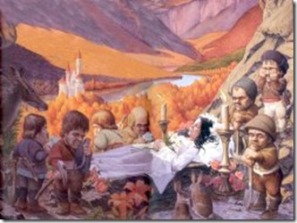 All of this is to say that in society, as in the womb, a period of uninterrupted and relatively undisturbed feelings of growth leads to feelings of depression—being too “soft” and “feminine,” but also “too fat” in the womb and, therefore, extremely constricted and compressed.
All of this is to say that in society, as in the womb, a period of uninterrupted and relatively undisturbed feelings of growth leads to feelings of depression—being too “soft” and “feminine,” but also “too fat” in the womb and, therefore, extremely constricted and compressed.
Why Women Fear Becoming Fat and Men Fear Appearing “Feminine”
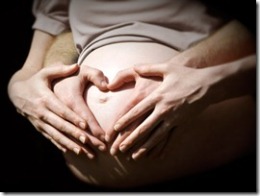
 Another way of saying this: feelings of expansion are followed by a fear of entrapment. And I agree wholeheartedly with deMause in saying that it happens this way in a nation’s cycle of feelings because it happened that way to us prior to and during our births. We have these patterns of feelings as collective groups of individuals because our first experience of expansion was followed by extreme depression, guilt, despair, and then struggle and something bloodily akin to war—our actual births.
Another way of saying this: feelings of expansion are followed by a fear of entrapment. And I agree wholeheartedly with deMause in saying that it happens this way in a nation’s cycle of feelings because it happened that way to us prior to and during our births. We have these patterns of feelings as collective groups of individuals because our first experience of expansion was followed by extreme depression, guilt, despair, and then struggle and something bloodily akin to war—our actual births.
What to Do to Stop War and Violence: Changing the Patterns of Millennia Requires Learning That Feeling Good Is Not Bad
To Derail War and Violence, Replace Self-Sabotaging With Self-Actualizing … We Can No Longer Afford Our Delusional Ways
What Can Be Done?

 So knowing this, how can we use it? In previous chapters, I explained how and why we see the dynamics of this perinatal unconscious, not coincidentally right now, on the ascendance, just at the time when it is crucial we deal with it to survive. I called this an emerging perinatal unconscious, and I went into detail about why it is happening now, what it means, and how we should take advantage of the opportunity it brings that could aid us in our current dilemma.
So knowing this, how can we use it? In previous chapters, I explained how and why we see the dynamics of this perinatal unconscious, not coincidentally right now, on the ascendance, just at the time when it is crucial we deal with it to survive. I called this an emerging perinatal unconscious, and I went into detail about why it is happening now, what it means, and how we should take advantage of the opportunity it brings that could aid us in our current dilemma.
For now, I need only remind that is imperative we face these unconscious forces instead of turning away from and thereby insuring our continued ignorance of them and helpless acting out of them.
So, how do we consciously participate in these drives, not merely be driven by them?
 Lloyd DeMause, in his article, “Restaging of Early Traumas in War and Social Violence,” printed in the spring 1996 issue of The Journal of Psychohistory, called for kinder and gentler birthing and child-caring practices to mitigate the ferocity of these forces within humans and help us avoid an otherwise inevitable planetary disaster. He was restating what other pre- and perinatal psychologists…I am
Lloyd DeMause, in his article, “Restaging of Early Traumas in War and Social Violence,” printed in the spring 1996 issue of The Journal of Psychohistory, called for kinder and gentler birthing and child-caring practices to mitigate the ferocity of these forces within humans and help us avoid an otherwise inevitable planetary disaster. He was restating what other pre- and perinatal psychologists…I am  one, by the way…including Thomas Verny and Stanislav Grof assert. [Footnote 5]
one, by the way…including Thomas Verny and Stanislav Grof assert. [Footnote 5]
However, I believe we need to go further than that. I, along with Grof, call for a larger awareness of and efforts in the direction of healing these perinatal elements in the consciousness and unconscious of those already alive right now. For unless we act to heal the people currently inhabiting this planet, we might not leave a planet that babies can be born into!…let alone people to conceive and give birth to them. Healing the perinatal traumas can be accomplished through, at this point, thoroughly tested and effective techniques of experiential regression and emotional release.
But it is impossible for everyone to take advantage of these techniques, especially in the short time we have to make the changes. But something short of that ideal may be sufficient to stave off otherwise inevitable doom.
Let me explain what I mean by that.
Finding the Weakest Spot
Of course only time will tell what will be the result of this emerging perinatal unconscious for our species.
Real, not blindly delusional, action is required.
But to get an idea of what we might hope for, given a readiness to actually do something about this, I offer a perspective. This understanding requires we remember some critical aspects of the cartography of the psyche described above. Looking into them we might begin to see where are the openings allowing for realistic action to be taken to bring about true, not just blindly delusional, change for our species.
We can no longer afford otherwise.

 For our purposes here, the most important part of the cycle is BPM I. Societies, according to deMause, go through these cycles of war and peace and have been doing so for as long as we know. But we can no longer afford these wars, as World War I and World War II have shown—with each one being an increase in our ability to destroy and to commit atrocities. We cannot afford to have a World War III as that most likely would end life on our planet.
For our purposes here, the most important part of the cycle is BPM I. Societies, according to deMause, go through these cycles of war and peace and have been doing so for as long as we know. But we can no longer afford these wars, as World War I and World War II have shown—with each one being an increase in our ability to destroy and to commit atrocities. We cannot afford to have a World War III as that most likely would end life on our planet.
Indeed, as I’ve been pointing out, we cannot even afford the less extreme forms of acting out of perinatal trauma that we have been doing in our poisoning of the earth and air, global overpopulation, and the ongoing regional wars to give just a few of many examples I could have used. These things, along with many other current quite insane tendencies of ours, have the capacity to end our species and possibly all life on this planet.
Feeling Good Is Not Bad

 So the cycle of societal perinatal acting out must be stopped. And the most obvious place to derail the insidious cycle is at the point of societal prosperity and progress. Feeling soft, undefended, and feminine are, rationally speaking, not things to be alarmed about.
So the cycle of societal perinatal acting out must be stopped. And the most obvious place to derail the insidious cycle is at the point of societal prosperity and progress. Feeling soft, undefended, and feminine are, rationally speaking, not things to be alarmed about.

 Quite to the contrary, it is rational that prosperity should make people feel good. It is rational that feeling soft should be a source of contentment, sensitivity, and intimacy with others. It makes sense that men should have no shame about feeling feminine because that only means that they have access to sensitive and nurturing feelings that are a source of joy, “color,” and fulfillment in life.
Quite to the contrary, it is rational that prosperity should make people feel good. It is rational that feeling soft should be a source of contentment, sensitivity, and intimacy with others. It makes sense that men should have no shame about feeling feminine because that only means that they have access to sensitive and nurturing feelings that are a source of joy, “color,” and fulfillment in life.
Changing the Patterns of Millennia

 But how do we do this? How do we convince people that feeling good is not bad? For these unconscious forces, these cycles of violence, have been pulling our strings for at least tens of thousands of years. How can we change such an engrained pattern?
But how do we do this? How do we convince people that feeling good is not bad? For these unconscious forces, these cycles of violence, have been pulling our strings for at least tens of thousands of years. How can we change such an engrained pattern?
Chasing the Mirages of the Future
Well, again, we get our leads from the experiences of individuals undergoing experiential psychotherapy.
“It’s never enough.”
For individuals also, if they are to heal themselves, have to learn how to appreciate success and to stop sabotaging themselves in the myriad of ways they do. Individuals act out their mini-cycles of “war” in their struggles to achieve. And people are driven to struggle to achieve because they cannot be pleased with what they have.

 Relating back to deMause’s societal schema, people cannot simply enjoy their “prosperity.” People cannot stop to smell the roses occasionally. We cannot count our blessings and feel contented with what we have. Nor can we enjoy the natural pleasure of being alive in the moment.
Relating back to deMause’s societal schema, people cannot simply enjoy their “prosperity.” People cannot stop to smell the roses occasionally. We cannot count our blessings and feel contented with what we have. Nor can we enjoy the natural pleasure of being alive in the moment.
“Wrong…It IS enough.”
No, instead what characterizes we humans—for the most part because of our having birth trauma—is a persistent drive to always have more than we do. We find that every accomplishment or success is short lived, with inexplicable depression following it. For each new attainment does not bring the expected (unconscious) rewards and leads us almost immediately to a new struggle, a new accomplishment to be sought.
Humans are driven to chasing mirages of better times somewhere off in the future, and we fail to live in the present. We feel unsatisfied with what we have and are continually deluded that some new possession, accomplishment, or love “conquest” will bring with it the missing happiness.
Becoming Self-Actualizing Instead of Self-Sabotaging
 When people are aware of the way they unconsciously sabotage their happiness, they sometimes seek help. And if they seek help in the experiential psychotherapies, they are enabled to work through their birth trauma so that they are no longer driven out of the moment, with its pleasure and pain, into an imagined but never attainable pleasureful and happy future.
When people are aware of the way they unconsciously sabotage their happiness, they sometimes seek help. And if they seek help in the experiential psychotherapies, they are enabled to work through their birth trauma so that they are no longer driven out of the moment, with its pleasure and pain, into an imagined but never attainable pleasureful and happy future.
Learning that it is enough
 So people derail their cycles of drivenness and their tendencies to sabotage their successes by learning to enjoy their “prosperity,” even if it is the simple pleasure of being alive. And when they act to add to that pleasantness, they do so, not out of drivenness, but out of feelings of flow and the simple joys of acting and actualizing one’s tendencies, talents, and desires. They become self-actualizing instead of self-sabotaging.
So people derail their cycles of drivenness and their tendencies to sabotage their successes by learning to enjoy their “prosperity,” even if it is the simple pleasure of being alive. And when they act to add to that pleasantness, they do so, not out of drivenness, but out of feelings of flow and the simple joys of acting and actualizing one’s tendencies, talents, and desires. They become self-actualizing instead of self-sabotaging.
Can You Handle Happiness? What to Do – We Get By With a Little Help, from Our Nature … Stand in the Place Where You Are
A Hierarchy of Healing … Becoming Human Beings (Not Doings): Removing the Hood from Homophobes, A Hard Rain, and Stand
OK, knowing this, one might ask if I am suggesting that to save our species everyone needs to get into experiential therapy. While that would be nice, it is not practical.
But I believe it is not necessary either. There is an element of that societal period of prosperity that can be used and focused on in order to make the societal change of pattern, the societal derailing of the tendency to self-sabotage through war-making.
Getting By, With a Little Help From Our Nature

 And that element is this: During times of prosperity, when one is less engaged in a struggle to survive, we find that one’s body will naturally try to heal itself of unresolved and somatically imprinted trauma by bringing into consciousness the repressed traumatic memories needing resolution.
And that element is this: During times of prosperity, when one is less engaged in a struggle to survive, we find that one’s body will naturally try to heal itself of unresolved and somatically imprinted trauma by bringing into consciousness the repressed traumatic memories needing resolution.
Hierarchy of Healing
This occurs in a manner similar to that of Maslow’s hierarchy of needs. Basically, one’s needs to “grow emotionally”…i.e., clear away the unresolved trauma…can only come to the fore when one’s physical survival needs are relatively taken care of. And arise they unerringly do, given any opportunity to do so.
“Don’t just do something, STAND there!”

 However, when these traumatic memories come up seeking resolution, they, also unerringly, bring with them the associated feelings of depression, unease, and pain. But because these feelings are anything but pleasant, to their detriment most people seek to avoid these feelings through addictions and other forms of “acting-out” behavior. So addictions and acting-out behavior emerge after periods of relative stability precisely because that stability allows unresolved feelings an opening for emergence and a possibility of resolution and healing.
However, when these traumatic memories come up seeking resolution, they, also unerringly, bring with them the associated feelings of depression, unease, and pain. But because these feelings are anything but pleasant, to their detriment most people seek to avoid these feelings through addictions and other forms of “acting-out” behavior. So addictions and acting-out behavior emerge after periods of relative stability precisely because that stability allows unresolved feelings an opening for emergence and a possibility of resolution and healing.
Allowing Our Society to Be Honestly, Blatantly “Sick”

 So there you have it; that is the crux. The period of societal prosperity can be maintained and added to if that society refuses to run away from the negative feelings that come up with success. As I have said, one needs to get “sicker” in order to get really well.
So there you have it; that is the crux. The period of societal prosperity can be maintained and added to if that society refuses to run away from the negative feelings that come up with success. As I have said, one needs to get “sicker” in order to get really well.
“Stand in the Place Where You Are … Just Stand.”

 Societally, we need to allow the social, formerly repressed, “sicknesses,” negativities, and the pain that comes with them to arise and be socially worked out, to be hashed out, rather than to escape them by resorting to scapegoating enemies and waging war against them. [Footnote 6]
Societally, we need to allow the social, formerly repressed, “sicknesses,” negativities, and the pain that comes with them to arise and be socially worked out, to be hashed out, rather than to escape them by resorting to scapegoating enemies and waging war against them. [Footnote 6]
Are We Doing This?
But can societies do this? Are they doing this?
Apparently Not
It does not seem so at the moment. For we have extreme acting out going on from Tea Party type elements. The homophobia that characterizes them is an indicator of the degree to which they are fearful of that feeling of being “soft” and “feminine,” I mentioned.
But Then Again…

 However there is a pattern in change that things can not really change until the negative slide has “hit bottom.” These negative forces cannot be gone beyond until they have wasted themselves in desperate acts. At this time also, positive forces are strengthening in the wings, burnishing their skills, tempering their character and nobility, fully capable when the time comes to take over. There are so many examples of this in social and individual histories, but not to get bogged down, I will mention one powerful one—Nelson Mandela. You can take it from there.
However there is a pattern in change that things can not really change until the negative slide has “hit bottom.” These negative forces cannot be gone beyond until they have wasted themselves in desperate acts. At this time also, positive forces are strengthening in the wings, burnishing their skills, tempering their character and nobility, fully capable when the time comes to take over. There are so many examples of this in social and individual histories, but not to get bogged down, I will mention one powerful one—Nelson Mandela. You can take it from there.
The more common thing to mention about change is that prior to a major paradigm shift, the forces on the decline always wage a fierce, desperate battle…a bloody retreat, a burning of the fields, near suicidal and totally reckless forays.
We see people do this, too, just before they are about to change. We see people who self-destruct being the ones whose last desperate battle before awareness can dawn being something that takes their life and perhaps others with them.
 We currently can point to Gaddafi, Assad, and other tyrants. We can observe reckless tea-baggers willing, as in the debt ceiling clash, to bring down the country for ideals that, however rationalized and spun, are at their roots as simple and crude as jealousy—of those smarter and more capable; hatred—of minorities, the poor, the “dirty,” the “slobs,” the “lazy”…basically all the scapegoats society allows them to vent the rage of their inner fears and hurt on; and homophobia—that fear of being “soft,” feminine, unmasculine, and being willing to kill or be killed rather than to let oneself be seen that way.
We currently can point to Gaddafi, Assad, and other tyrants. We can observe reckless tea-baggers willing, as in the debt ceiling clash, to bring down the country for ideals that, however rationalized and spun, are at their roots as simple and crude as jealousy—of those smarter and more capable; hatred—of minorities, the poor, the “dirty,” the “slobs,” the “lazy”…basically all the scapegoats society allows them to vent the rage of their inner fears and hurt on; and homophobia—that fear of being “soft,” feminine, unmasculine, and being willing to kill or be killed rather than to let oneself be seen that way.
Homophobes Don’t Fear Homosexuals … They Fear What’s Inside Themselves
 Before continuing, one big misconception around that last point needs clearing up: homophobia is at base not fear/hatred of homosexuals, it is terror/hatred of the “feminine” and “softness” inside of the man himself who is homophobic. And this is the result of tens of thousands of years of “civilization,” still continuing, in which men are threatened with disapproval, ostracism, ridicule, attack, or worse for not repressing their softer sides down to the level of the norm of their group.
Before continuing, one big misconception around that last point needs clearing up: homophobia is at base not fear/hatred of homosexuals, it is terror/hatred of the “feminine” and “softness” inside of the man himself who is homophobic. And this is the result of tens of thousands of years of “civilization,” still continuing, in which men are threatened with disapproval, ostracism, ridicule, attack, or worse for not repressing their softer sides down to the level of the norm of their group.
Boys Learn They Must Be Less Alive to Survive
Boys learn they must constrict their potentials and diminish themselves to that which coincides with—and does not threaten—the older males in their group or face severe punishment. Boys learn the consequences for not becoming less than they could be are severe, often from their own fathers.
Girls Learn They Must Feel Less Pleasure to Be Liked
And by the way, something similar goes on with young girls and the reduction of their potentials. We see a blatant example of this in the practice of cliterectomy—also called female genital mutilation—in some cultures. In this practice the older women—mother and aunts usually—are responsible for this brutal and extremely painful and bloody attack. It tells little girls they will have no pleasure more than that which was allowed the older women, themselves, in that patriarchal world. So girls must diminish themselves in order to not be hated and ostracized by the women of the group, who, already having been diminished, would be jealous of someone being allowed to have what they have not. This is an exact mirror image of the process that goes on in the diminution of the personalities—the potentials—of young boys.
A Hard Rain’s Gonna Fall
Now to continue: So seeing so much of this pathos, hate, and bitter fear and anger is hopeful for us to be near the end of the cycle. Certainly it could get worse. But I personally don’t see how we could go much further on this path to oblivion without going past the point of no return. Perhaps we are not meant to succeed. Perhaps we are doomed. But I know in my own life, and that is the only true basis anyone can have for knowing how things really work, that, without fail, every seeming “loss of ground” was a prelude to an even bigger “advance.”
As Jung said, we need to take two steps backward to make a big leap forward. That is the way individuals are. And societies and populations are just collections of individuals. As the Tao symbol depicts, the seed of light is in the depths of darkness. So we can hold on to that, for one thing.
So Let Us See. A Scenery of Healing?
With these considerations in mind, the next chapter will evaluate our current social-cultural scenery for our prospects. In Rebirthing Rituals – The Sometimes Messy Scenery of Healing—we will look for any indications that this standing firm in the face of the rising up of the repressed social Shadow—allowing the pain of it and facing it foursquare, hashing it out—is to be found in the current social arena.
If we can find this being done, we may allow ourselves at least the hope for a change in consciousness radical enough to save us from extinction. On the contrary, if we find little or no evidence for this kind of auspicious, fruitful healing activity, we might as well consider ourselves doomed.
Continue with Apocalypse No! Chapter Nine: Regressions in the Service of Society — Messy Healing
Return to Apocalypse No, Chapter Seven: Through Gaia’s Eyes – Nature Balances HerSelf
Footnotes
1. The book mentioned was posted online in two places in August, 2011: Culture War and Culture War, Class War.
2. Lloyd deMause, “Restaging of Early Traumas in War and Social Violence.” The Journal of Psychohistory 23 (1995): 2. Reprinted with permission on the Primal Spirit site.
Stanislav Grof, Realms of the Human Unconscious: Observations from LSD Research. New York: Viking Press, 1975; LSD Psychotherapy. Pomona, CA: Hunter House, 1980; Beyond the Brain: Birth, Death, and Transcendence in Psychotherapy. Albany, NY: State University of New York Press, 1985; The Adventure of Self-Discovery: Dimensions of Consciousness and New Perspectives in Psychotherapy and Inner Exploration. Albany, NY: State University of New York Press, 1988; The Holotropic Mind: The Three Levels of Human Consciousness and How They Shape Our Lives. San Francisco: HarperSanFrancisco, 1993.
3. I explain this in more detail in Chapter Seven: We Ain’t Born Typical under the heading “Elements of Birth Experience.”
4. “You’ll wallow in the shit and you’ll think you’re happy” and “You’re really in a laundry room” from, and with appreciation to, Kurt Cobain. These are lyrics in his song, “Sad.” The video and lyrics are reproduced again here for your convenience:
Nirvana – “Sad” (also “Sappy” and “Verse Chorus Verse”) – Lyrics
And if you save yourself You will make him happy He’ll keep you in a jar And you’ll think you’re happy He’ll give you breathing holes Then you’ll think you’re happy He’ll cover you with grass And you’ll think you’re happy Now You’re really in a laundry room, You’re really in a laundry room Conclusion came to you, oh And if you cut yourself You will think you’re happy He’ll keep you in a jar Then you’ll make him happy He’ll give you breathing holes Then you’ll think you’re happy He’ll cover you with grass Then you’ll think you’re happy Now You’re really in a laundry room, You’re really in a laundry room Conclusion came to you, oh (x2) And if you fool yourself You will make him happy He’ll keep you in a jar And you’ll think you’re happy He’ll give you breathing holes Then you will seem happy You’ll wallow in your shit Then you’ll think you’re happy Now You’re really in a laundry room (x3) Conclusion came to you, oh Alternate lyrics: And if you kill yourself You will make him happy
5. Lloyd deMause, “Restaging of Early Traumas in War and Social Violence.” The Journal of Psychohistory 23 (1995): 2. Reprinted with permission on the Primal Spirit site.
Stanislav Grof, Realms of the Human Unconscious: Observations from LSD Research. New York: Viking Press, 1975; LSD Psychotherapy. Pomona, CA: Hunter House, 1980; Beyond the Brain: Birth, Death, and Transcendence in Psychotherapy. Albany, NY: State University of New York Press, 1985; The Adventure of Self-Discovery: Dimensions of Consciousness and New Perspectives in Psychotherapy and Inner Exploration. Albany, NY: State University of New York Press, 1988; The Holotropic Mind: The Three Levels of Human Consciousness and How They Shape Our Lives. San Francisco: HarperSanFrancisco, 1993.
6. “Stand in the place where you are…just stand” from and with appreciation to R.E.M. While it seems no one understood the group’s huge initial release, “Stand,” it is quite meaningful in the current context. A video and lyrics are included here for your consideration:
R.E.M. – “Stand” … lyrics
Stand in the place where you live
Now face North
Think about direction
Wonder why you haven’t before
Now stand in the place where you work
Now face West
Think about the place where you live
Wonder why you haven’t before
If you are confused check with the sun
Carry a compass to help you along
Your feet are going to be on the ground
Your head is there to move you around
[repeat 1st verse]
Your feet are going to be on the ground
Your head is there to move you around
If wishes were trees the trees would be falling
Listen to reason
Season is calling
[repeat 1st verse]
If wishes were trees the trees would be falling
Listen to reason
Reason is calling
Your feet are going to be on the ground
Your head is there to move you around
So Stand (stand)
Now face North
Think about direction, wonder why you haven’t before
Now stand (stand)
Now face West
Think about the place where you live
Wonder why you haven’t
[repeat 1st verse]
Stand in the place where you are (Now face North)
Stand in the place where you are (Now face West)
Your feet are going to be on the ground (Stand in the place where you are)
Your head is there to move you around, so stand.
Derailing the Cycles of War and Violence – Audiocasts
“Part 1; What Say We Leave a Planet for Our Offspring?” – the audio by SillyMickel Adzema
For the author’s reading, with elaboration, of this part, click on the link to the audio site above or click the audio player here:
http://ecdn0.hark.com/swfs/player_fb.swf?pid=pffbztrfkv
“Part 2; Can You Handle Happiness (And the Pain That Comes With It)?” – the audio by SillyMickel Adzema
For the author’s reading, with elaboration, of this part, click on the link to the audio site above or click the audio player here:
http://ecdn0.hark.com/swfs/player_fb.swf?pid=syglfhsvld
Continue with Apocalypse No! Chapter Nine: Regressions in the Service of Society — Messy Healing
Return to Apocalypse No, Chapter Seven: Through Gaia’s Eyes – Nature Balances HerSelf
Invite you to join me on Twitter:
http://twitter.com/sillymickel
friend me on Facebook: https://www.facebook.com/sillymickel



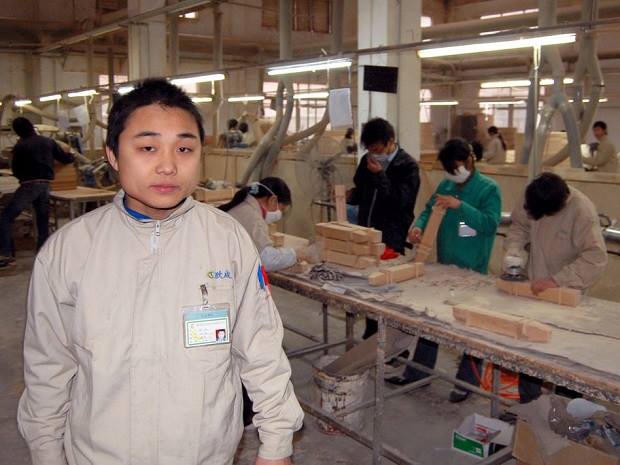


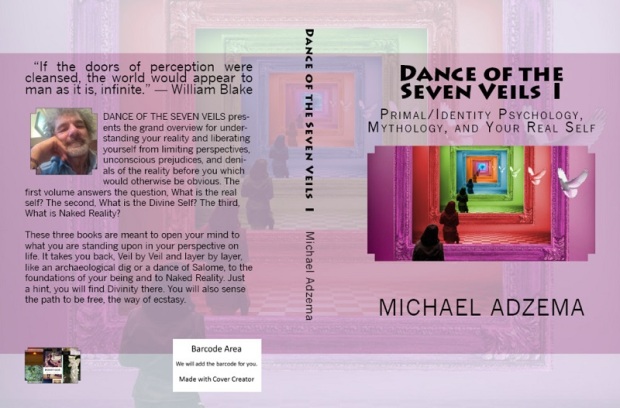

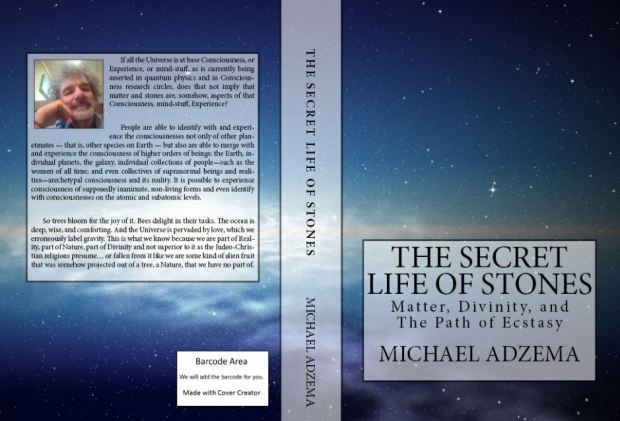


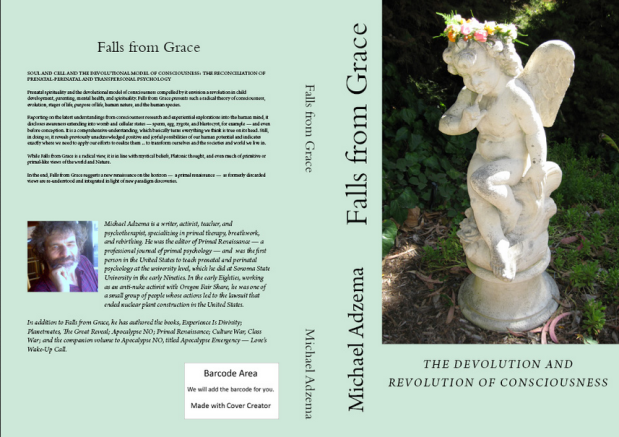



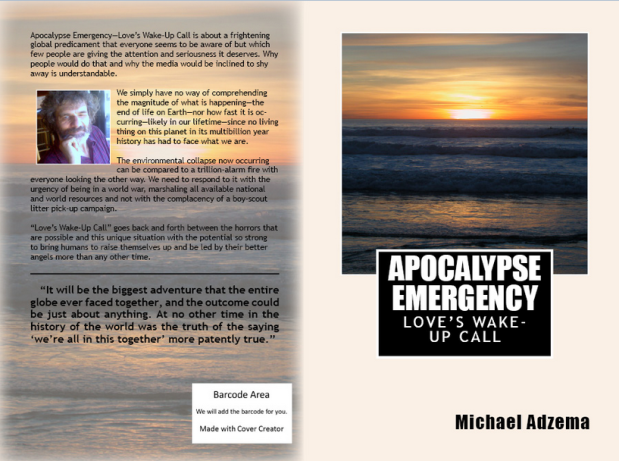
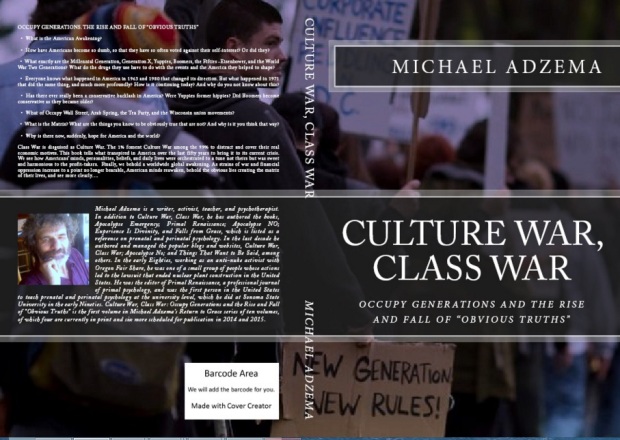
























































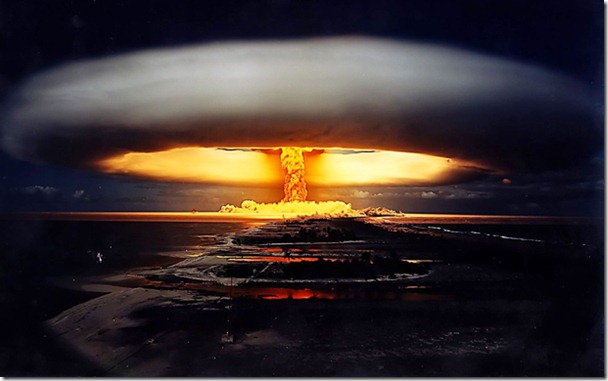













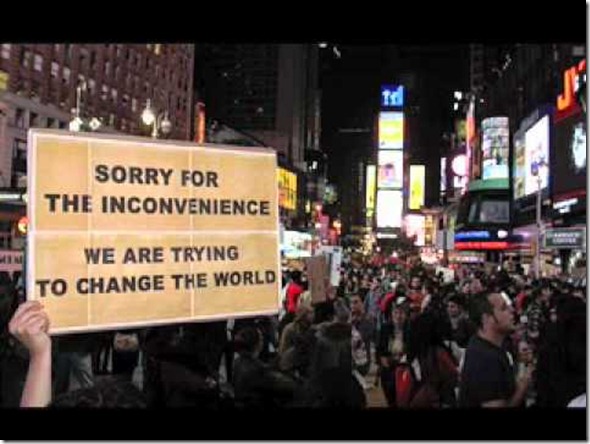































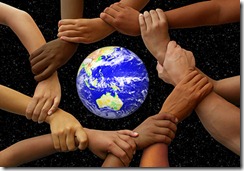



















 medians and into oncoming traffic it turns out were premonitions, as a few years later they were proven to be horrifyingly correct. In 1998 to be exact, this problem became big enough to finally become a story in the mainstream media. Highway deaths, caused by a lack of places for sleepy truckers to park, were piling up in numbers too large to ignore any longer.
medians and into oncoming traffic it turns out were premonitions, as a few years later they were proven to be horrifyingly correct. In 1998 to be exact, this problem became big enough to finally become a story in the mainstream media. Highway deaths, caused by a lack of places for sleepy truckers to park, were piling up in numbers too large to ignore any longer. 
 But in ’91-’92, these realities had not been statistically blatant enough to make the evening news and went unnoticed. However our U.S. Congress was not completely oblivious to such effects of its cutbacks. “America can no longer afford to maintain its infrastructure,” they said in 1993 when they had the chance to appropriate money for ordinary maintenance.
But in ’91-’92, these realities had not been statistically blatant enough to make the evening news and went unnoticed. However our U.S. Congress was not completely oblivious to such effects of its cutbacks. “America can no longer afford to maintain its infrastructure,” they said in 1993 when they had the chance to appropriate money for ordinary maintenance.  To get themselves off the hook, they dared to call these highway and infrastructure funds “pork barrel.” And instead they wrote laws to crack down on the truck drivers and their employers for overtime driving…now that’s gonna find ‘em a place to pull over!
To get themselves off the hook, they dared to call these highway and infrastructure funds “pork barrel.” And instead they wrote laws to crack down on the truck drivers and their employers for overtime driving…now that’s gonna find ‘em a place to pull over!

 side road and turning back around again…almost as if that were part of the route—to make that kind of loop before proceeding.
side road and turning back around again…almost as if that were part of the route—to make that kind of loop before proceeding.




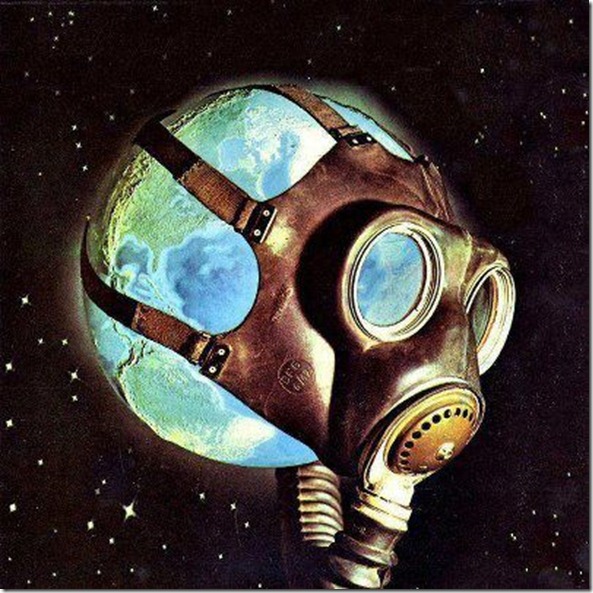
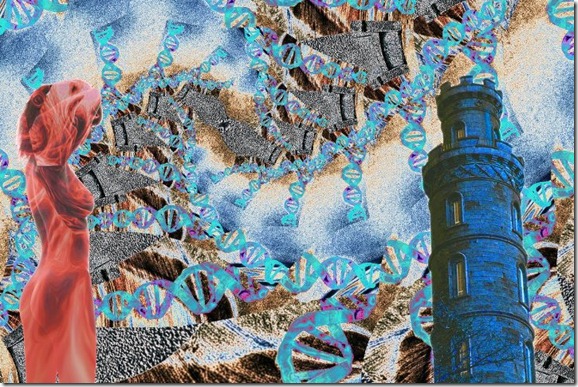
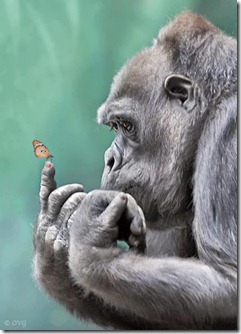







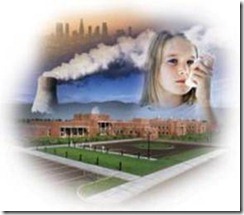



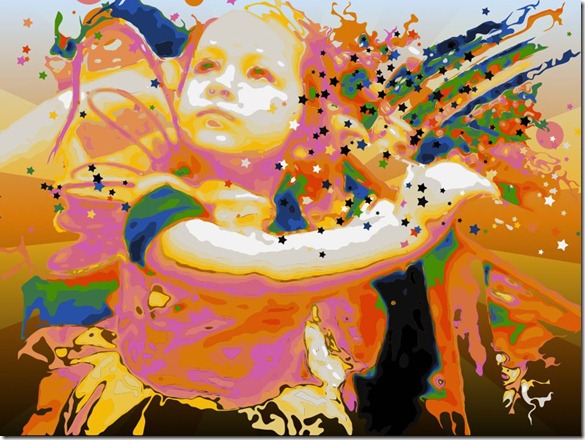



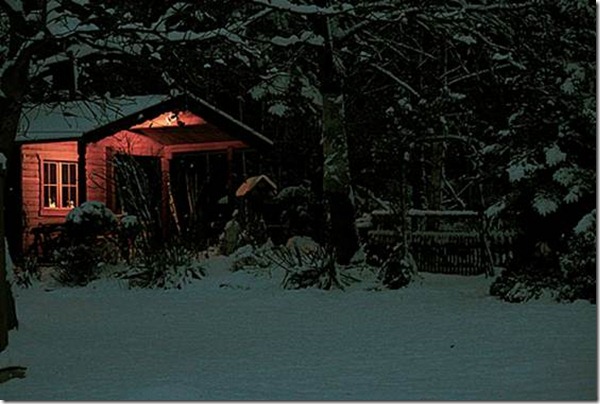













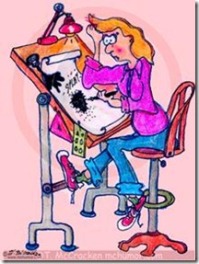











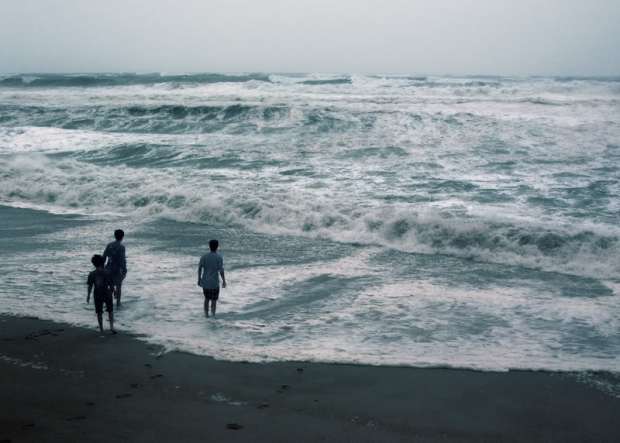




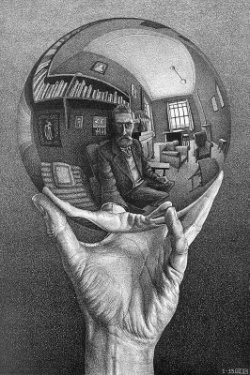
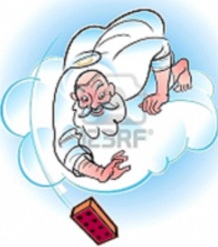
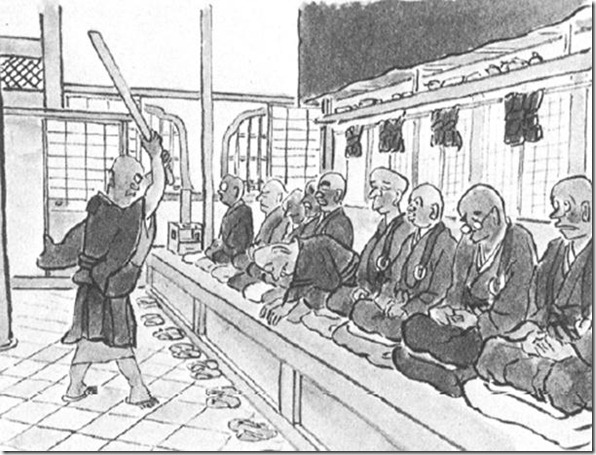













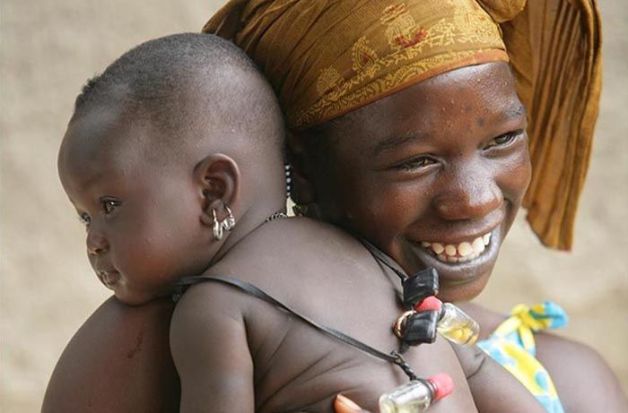
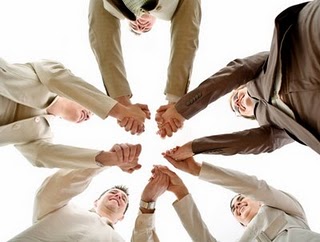

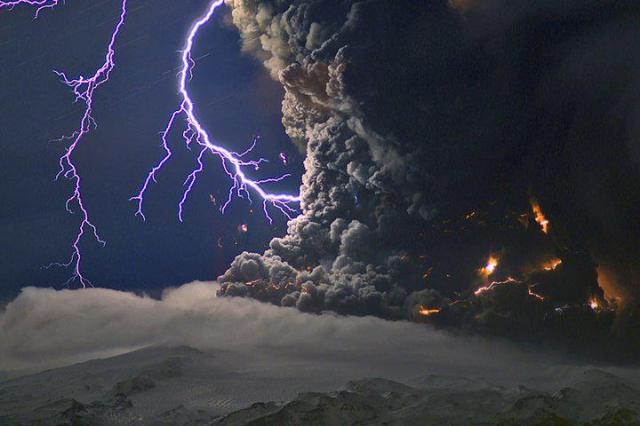










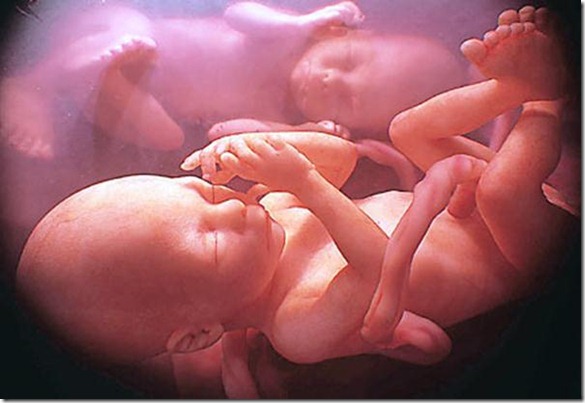



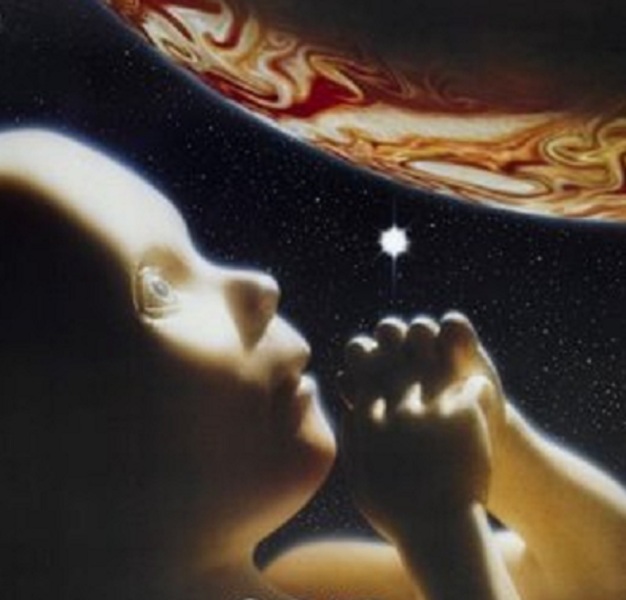











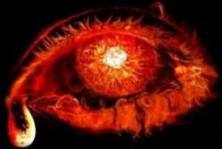





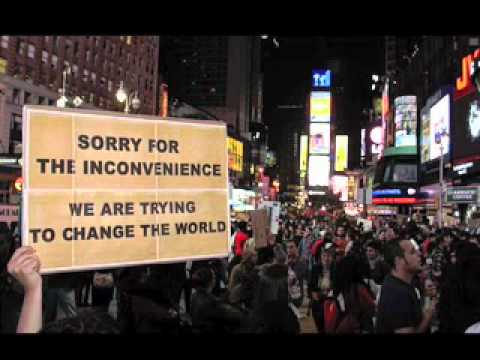















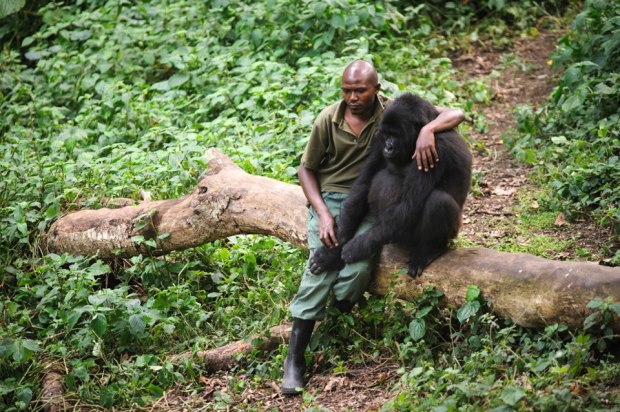
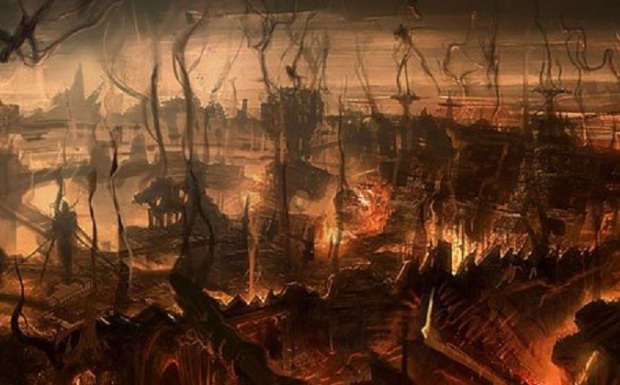
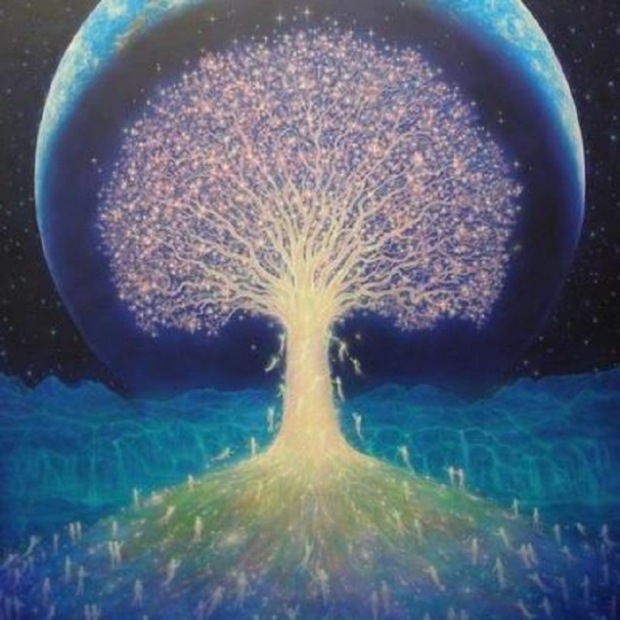



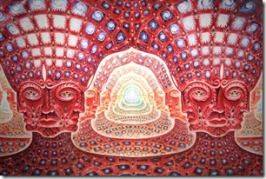




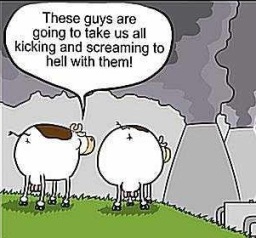
































































































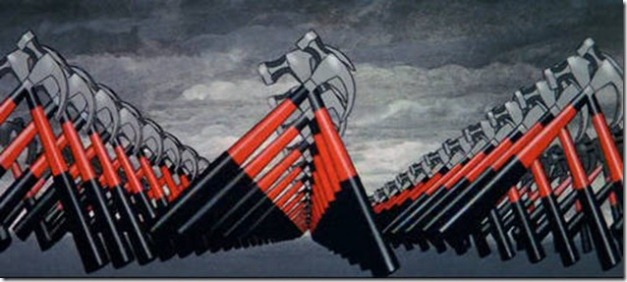






















































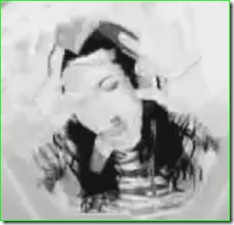




























![imageturtiyties_thumb[1] imageturtiyties_thumb[1]](https://apocalypseknow.files.wordpress.com/2012/03/imageturtiyties_thumb1_thumb.jpg?w=605&h=404)






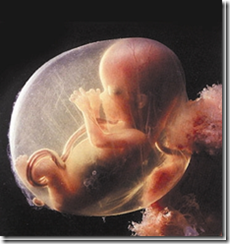





















![The Wall Movie 1982 (7)_thumb[1] The Wall Movie 1982 (7)_thumb[1]](https://apocalypseknow.files.wordpress.com/2012/03/the-wall-movie-1982-7_thumb1_thumb.jpg?w=626&h=315)













































